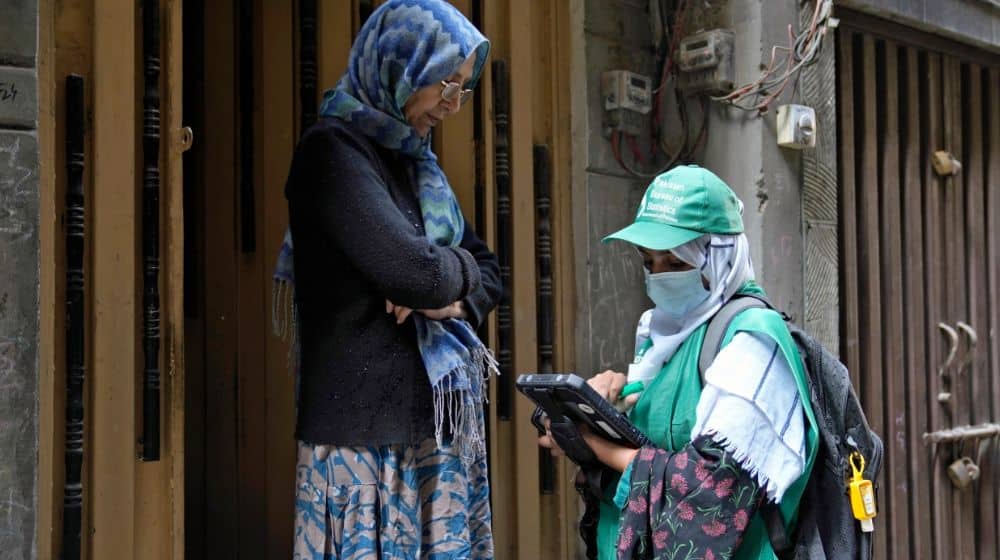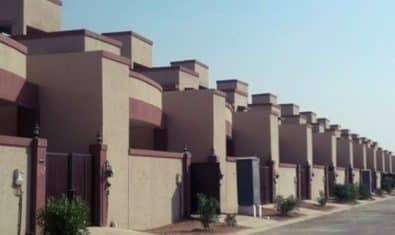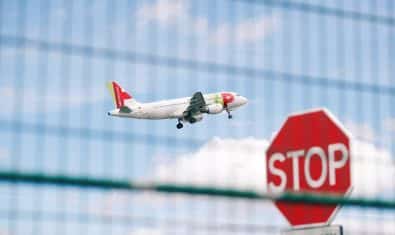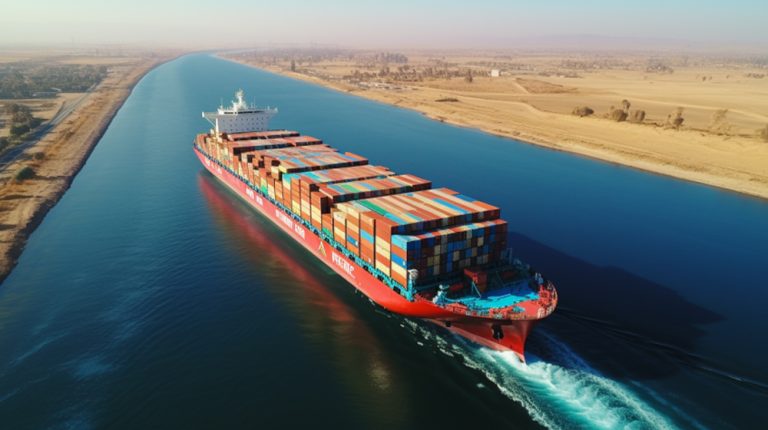The provincial governments are playing a major role to ensure 100% coverage while ensuring the quality and credibility of the whole census process.
The real-time data progress monitoring dashboards, provided by the Pakistan Bureau of Statistics (PBS) down to provincial and district governments, allow for a completely transparent process and continuous oversight of field operations.
The dashboard also helps provincial governments in identifying any abnormalities, any areas missed and any other emerging anomalies on a daily basis. The data received is analyzed on a daily basis by the PBS Headquarters and immediately communicated to the provinces for their resolution to ensure timely response and universal and complete coverage.
The digital census is a huge success and a moment of pride for the nation. So far, 40 million households have been counted and geo-tagged and 92% of the census work has been successfully completed (95% KP, 95% Punjab, 92% Sindh, 6% Baluchistan).
The smooth workflow and technology innovations, the data of almost 10 million people is daily synchronized without any issues or technical glitches. This is a huge win for Pakistan.
In a historic and exemplary move, the PBS with the support of provincial and district governments for census coverage and NADRA and NTC for technology is currently holding the first-ever digital census of Pakistan and the largest digital census of its kind in South Asia.
The move towards digitization has allowed provincial and district governments, who are responsible for the field operations for the 100% universal and inclusive census coverage, to immediately identify the missed areas using the geotagged houses and the quality of data entered for them by the enumerators in real time. Therefore, immediately addressing any issues or gaps. The PBS provides the design, strategic approach, oversight, and support to all activities of the census.
The PBS has further supported the provincial and district governments by setting up a helpline 080057574 and SMS gateway 9727 where people can call for queries or report anyone or any area missed. Recently, on the directions of the Prime Minister, 495 Census Support Centers are now also working as points of referral for all missed areas.
The success of the current census is also attributed to the rigorous, universally standardized training provided by the PBS to 121,000 field enumerators that were identified and selected by the provinces, along with 126,000 tablets to digitize the data collection process, hence increasing accuracy and efficiency while significantly reducing the time taken in entering, reconciling and analyzing the data.
The PBS designed the digital census as a solution to the questions raised on the process during the previous census in 2017. The methodologies and processes were finalized following international best practices and extensive consultations with all stakeholders at all levels.
On the recommendation of the Census Advisory Committee, the PBS started work with technical support provided by NADRA and NTC and field operations executed by Provincial and district governments. It is a commendable initiative as it increases transparency, accountability, and efficiency.
Sarwar Gondal, Member SSRM and Spokesperson PBS, said, “The PBS took an exemplary initiative to use an integrated multi-technology approach to digitize the census process. Hence, eliminating any shadow of doubt about the census results. Working day and night, the talented PBS team supported by stakeholders developed a comprehensive and extensive digitized methodology and approach for the census.”
The main objective of the census is to provide data for informed decision-making for policy planning for the people living in particular areas so that required resources can be provided for the provision of basic necessities like schools, hospitals, roads, etc.
Questions asked in the census pertain to the number of people and living standards. Census is not linked to the voter nor does it have the ability to discriminate. It is a mandatory civic duty which all of us need to participate in, for our future, for the future of our children, and for the future of the country.
The current methodology ensures universal inclusion, which means that each and every individual living in the location for six months, or planning to live there for another six months, and will be using resources around that location, regardless of their nationality, geography, ethnicity, identity, affiliations, politics, caste or creed, will be counted.
As per the General Statistics Reorganization Act 2011 and UN Conventions, the census is a national duty to inform policymaking, decision-making, future planning, and development for the progress of the country and people. The PBS has digitally transformed the census for ease of use while ensuring verifiability, transparency, and accountability.
In an environment wrought with economic challenges and deteriorating living standards, PBS gave us hope by modernizing and digitizing the census, bringing it on par with those developed nations that conduct their census using technology to various degrees. These include the United States, United Kingdom, India, Iran, Egypt, and Bangladesh among others.
The only surest way to ensure that the census is credible is for people to provide their complete and reliable information, and actively notify their Provincial or district governments in case any area has been left behind.



























